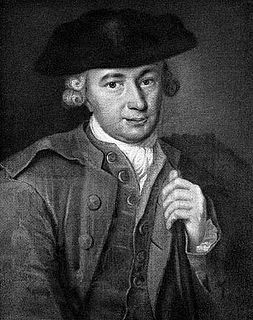A Quote by Ralph Waldo Emerson
Nothing shall warp me from the belief that every man is a lover of truth. There is no pure lie, no pure malignity in nature. The entertainment of the proposition of depravity is the last profligacy and profanation. There is no skepticism, no atheism but that. Could it be received into common belief, suicide would unpeople the planet.
Related Quotes
The man who has a certain religious belief and fears to discuss it, lest it may be proved wrong, is not loyal to his belief, he has but a coward's faithfulness to his prejudices. If he were a lover of truth, he would be willing at any moment to surrender his belief for a higher, better, and truer faith.
Obviously, if theism is a belief in a God and atheism is a lack of a belief in a God, no third position or middle ground is possible. A person can either believe or not believe in a God. Therefore, our previous definition of atheism has made an impossibility out of the common usage of agnosticism to mean "neither affirming nor denying a belief in God."
In practice, the goal of skepticism is not the discovery of truth, but the exposure of other people's errors. It plays a useful role in science, religion, scholarship, and common sense. But we need to remember that it is a weapon serving belief or self-interest; we need to be skeptical of skeptics. The more militant the skeptic, the stronger the belief.
The first spiritual law of success is the Law of Pure Potentiality. This law is based on the fact that we are, in our essential state, pure consciousness. Pure consciousness is pure potentiality; it is the field of all possibilities and infinite creativity. Pure consciousness is our spiritual essence. Being infinite and unbounded, it is also pure joy. Other attributes of consciousness are pure knowledge, infinite silence, perfect balance, invincibility, simplicity, and bliss. This is our essential nature. Our essential nature is one of pure potentiality.
When was the last time you heard an insightful, inspiring piece of oratory from an Australian political leader, an appeal to what is pure and true within humanity: a statement of belief backed by ideas for change betterment, a call to those immutable values wherein lie the potential greatness of people individually and collectively? Such exhortation, such leadership is lamentably scarce.
They have their belief, these poor Tibet people, that Providence sends down always an Incarnation of Himself into every generation. At bottom some belief in a kind of Pope! At bottom still better, a belief that there is a Greatest Man; that he is discoverable; that, once discovered, we ought to treat him with an obedience which knows no bounds. This is the truth of Grand Lamaism; the "discoverability" is the only error here.






































